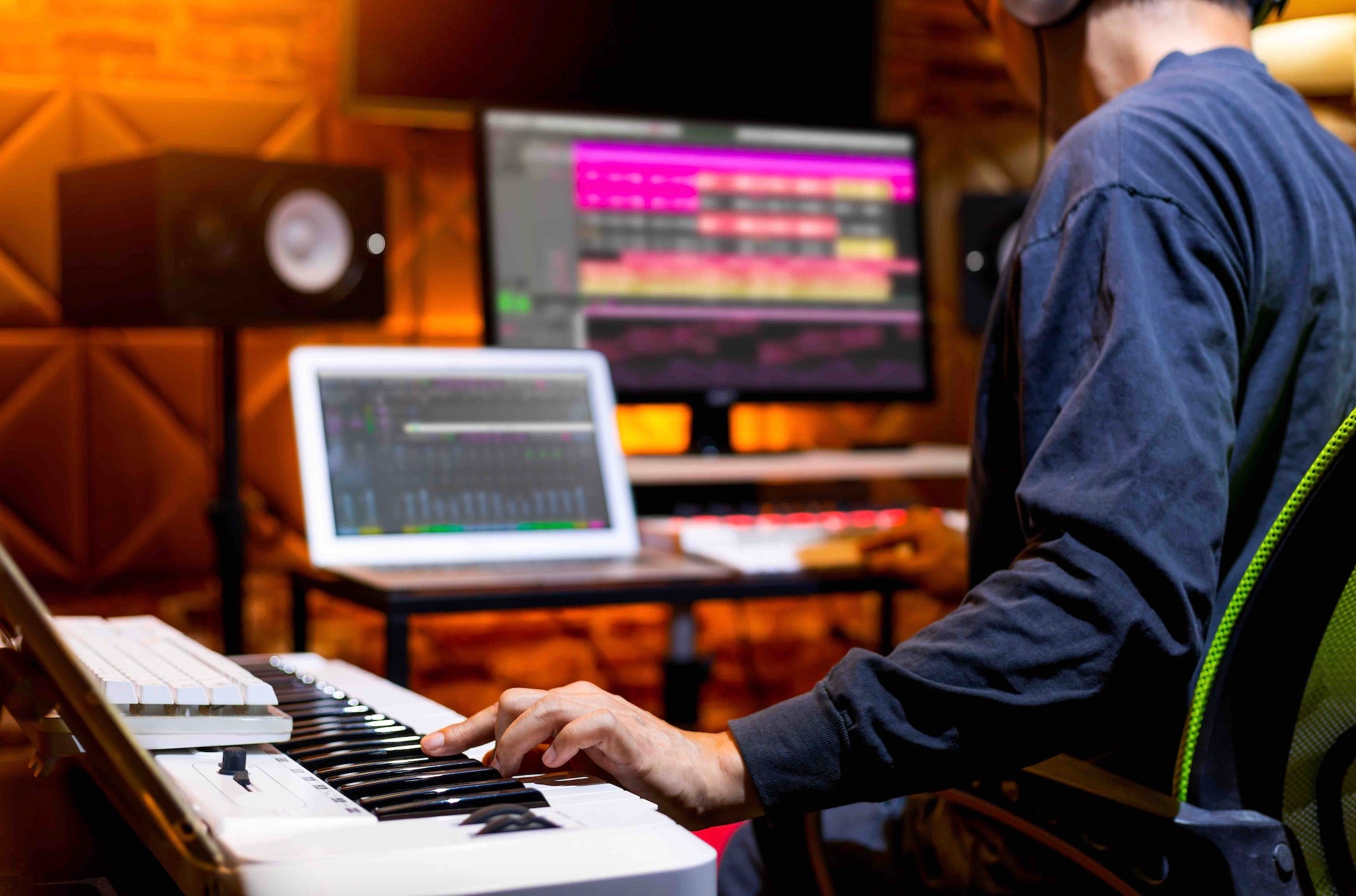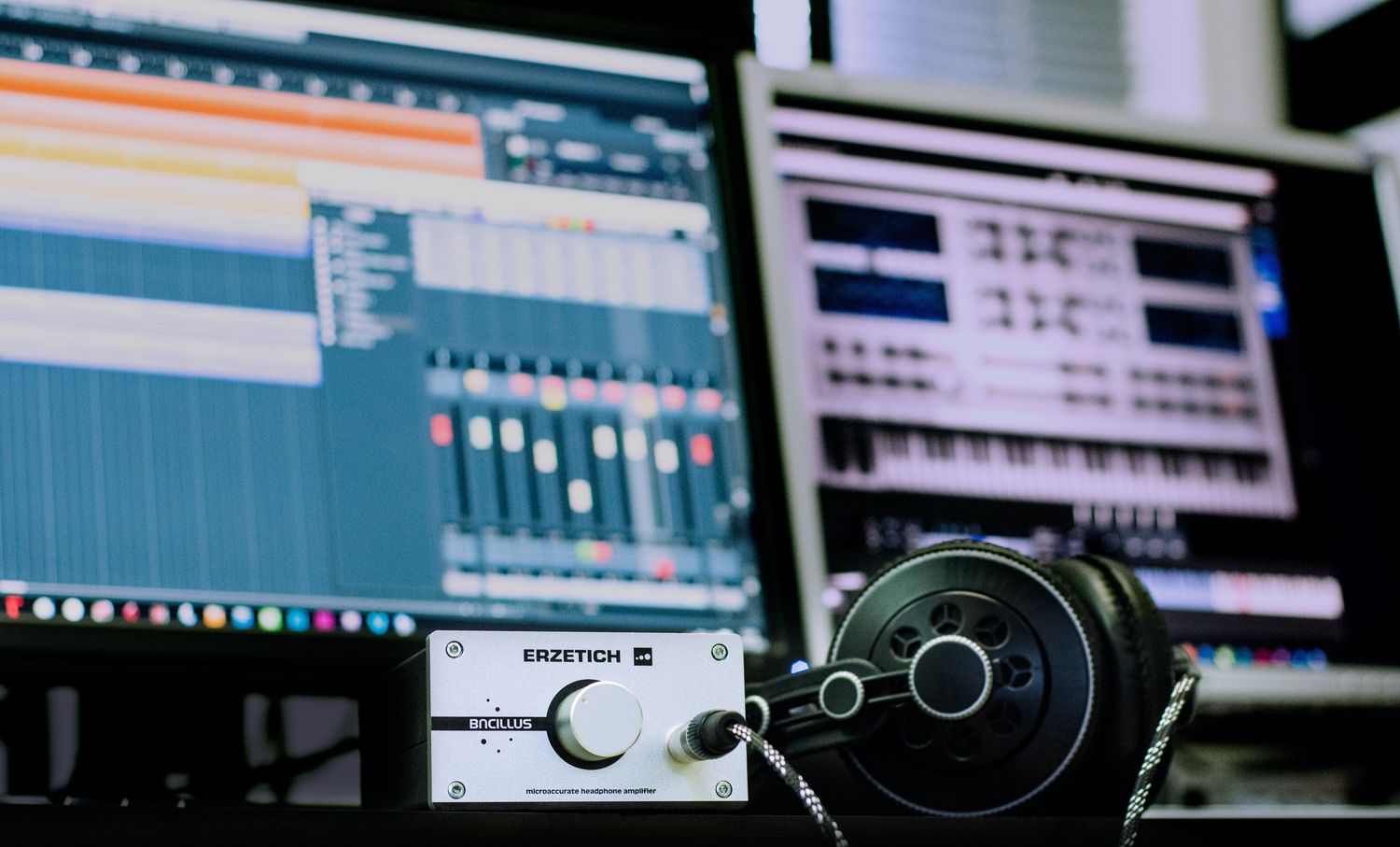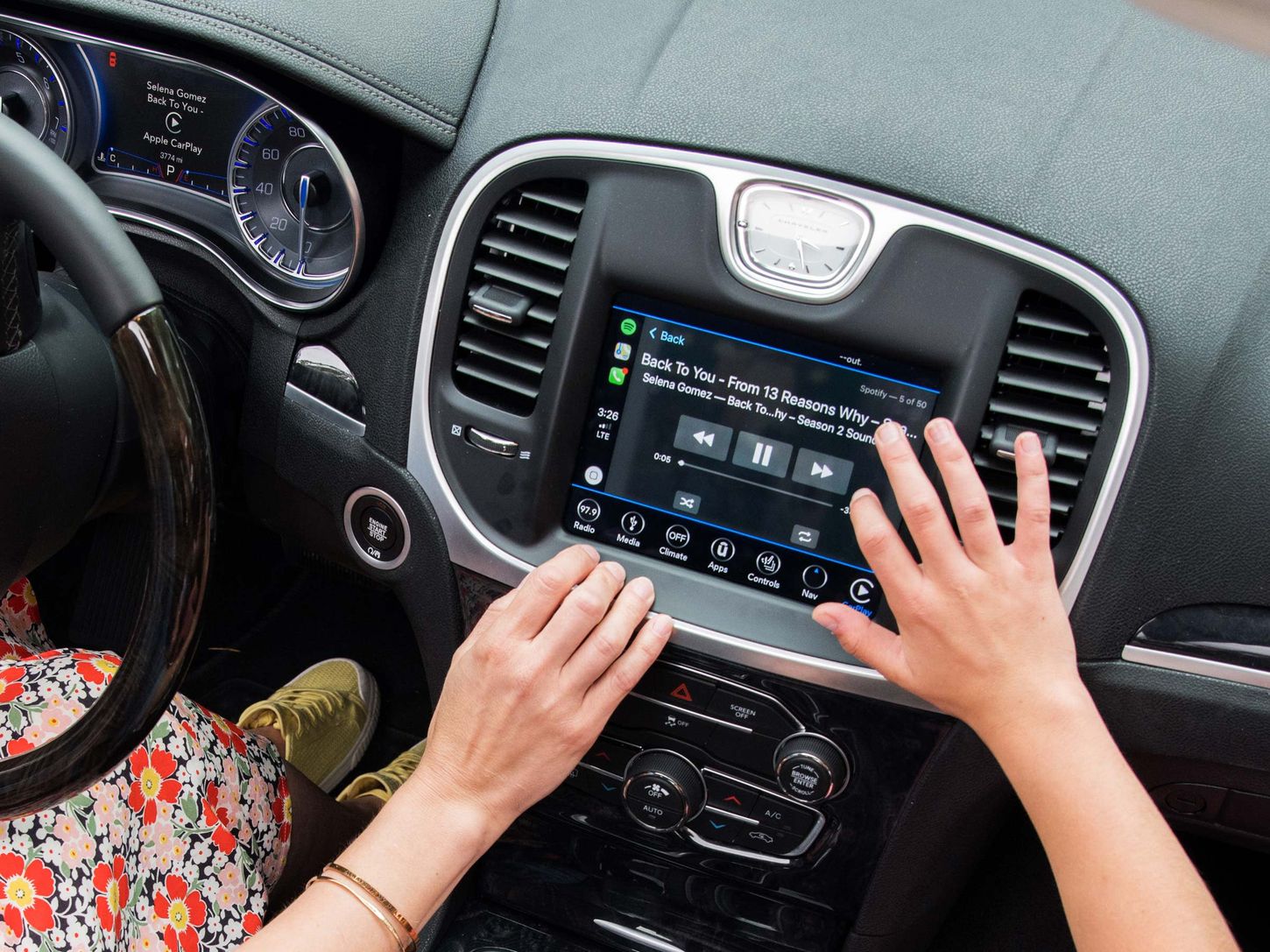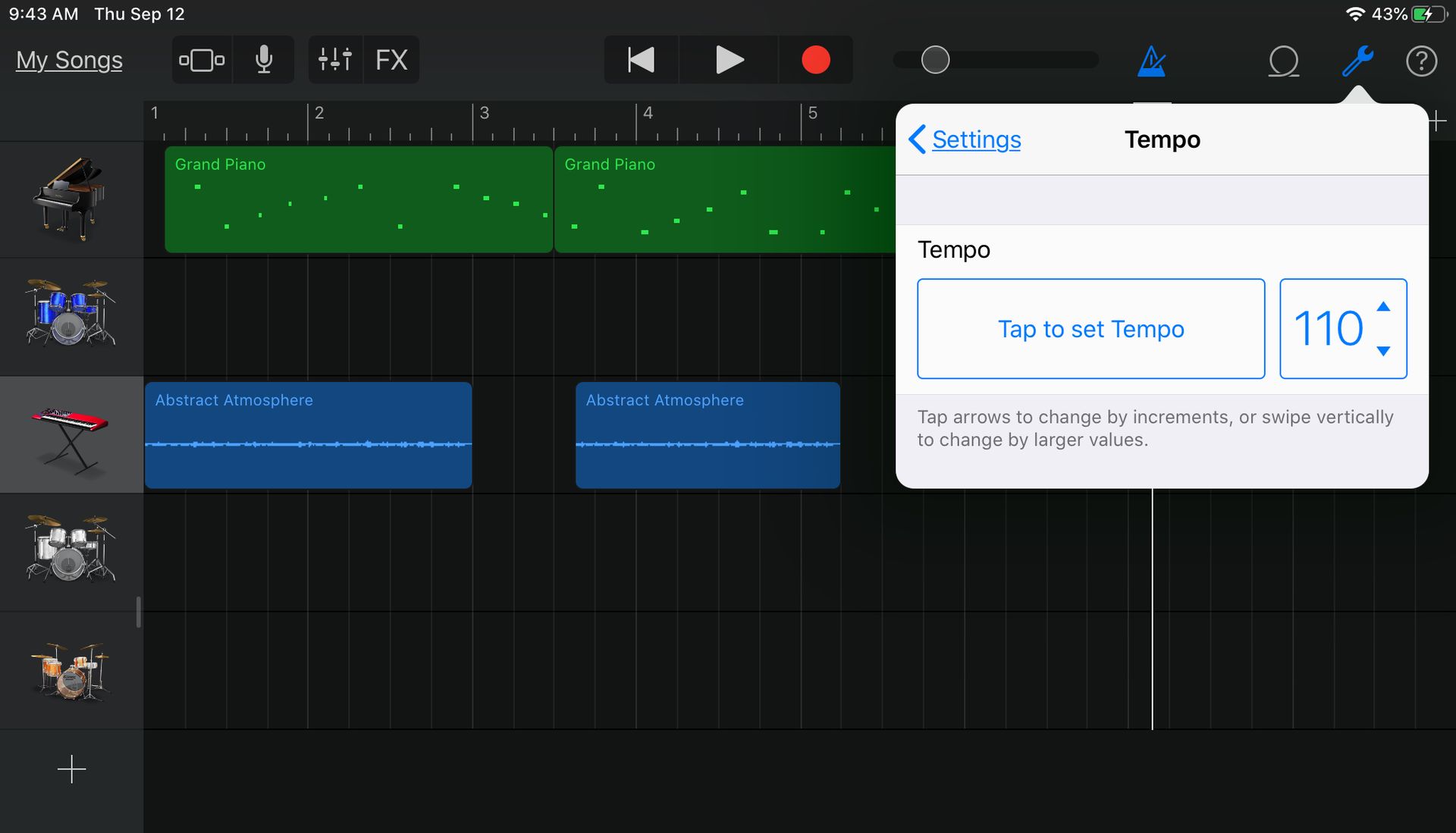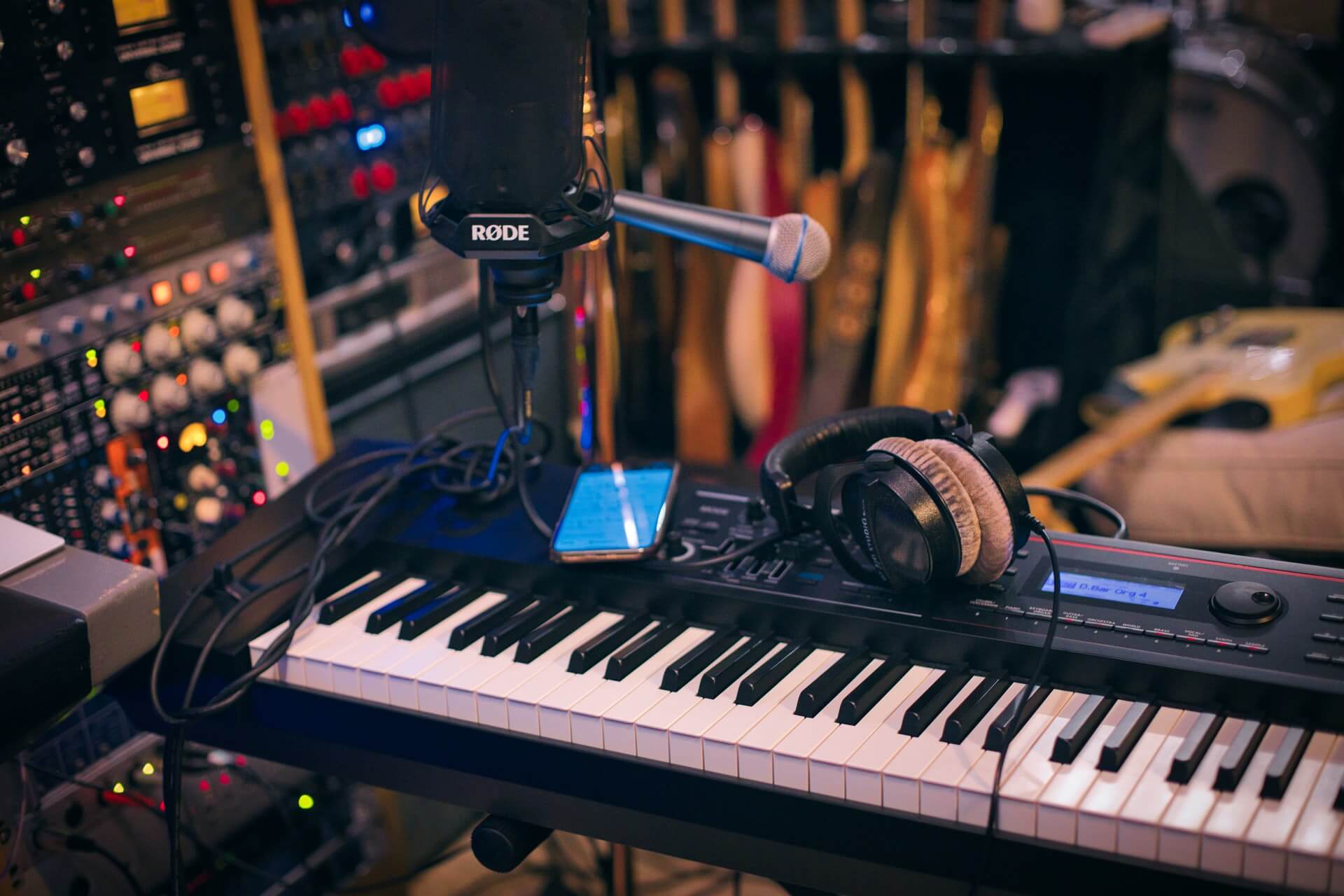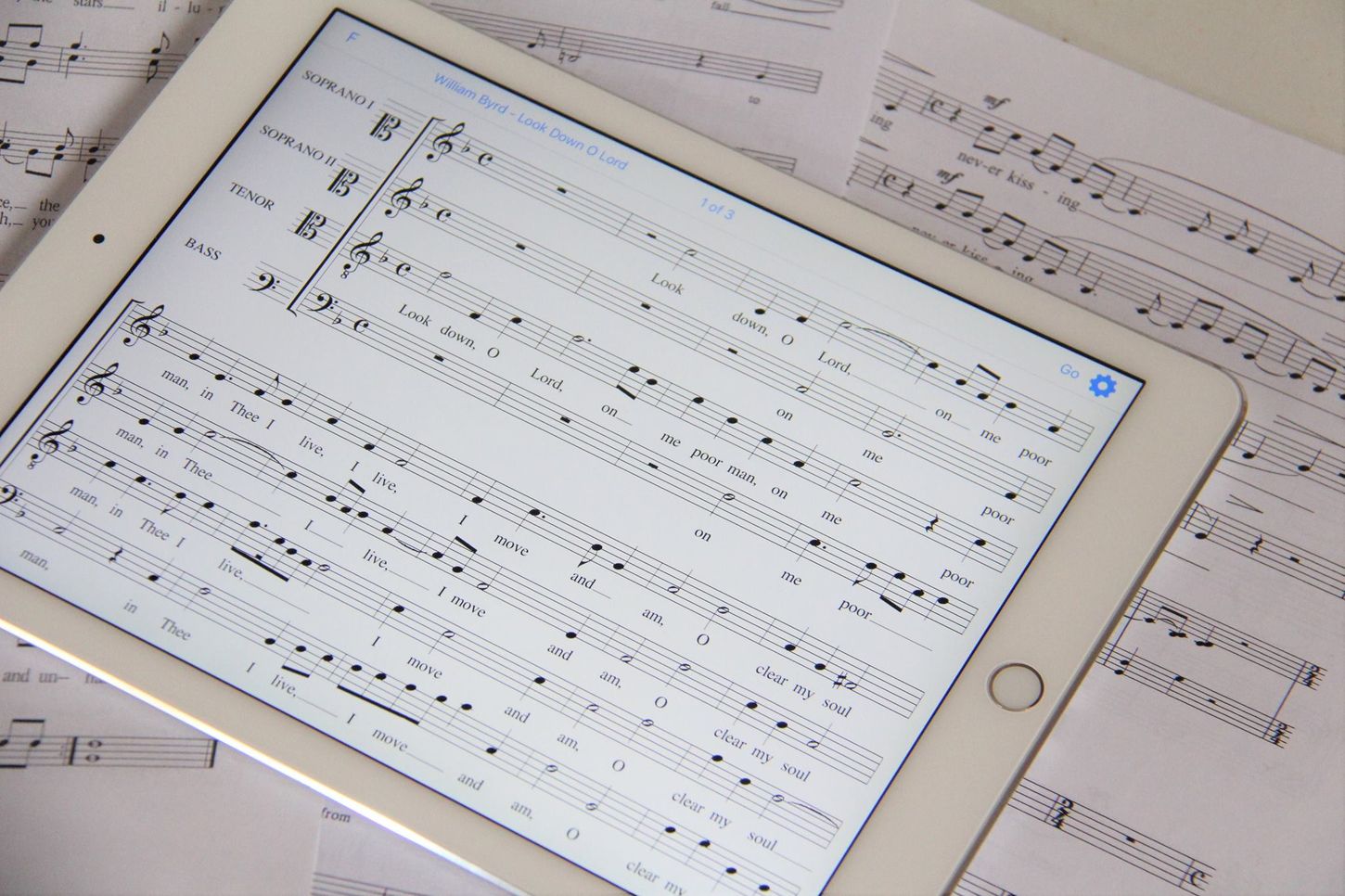Home>Production & Technology>Digital>The Beatles In The Digital Era: How They Changed Music
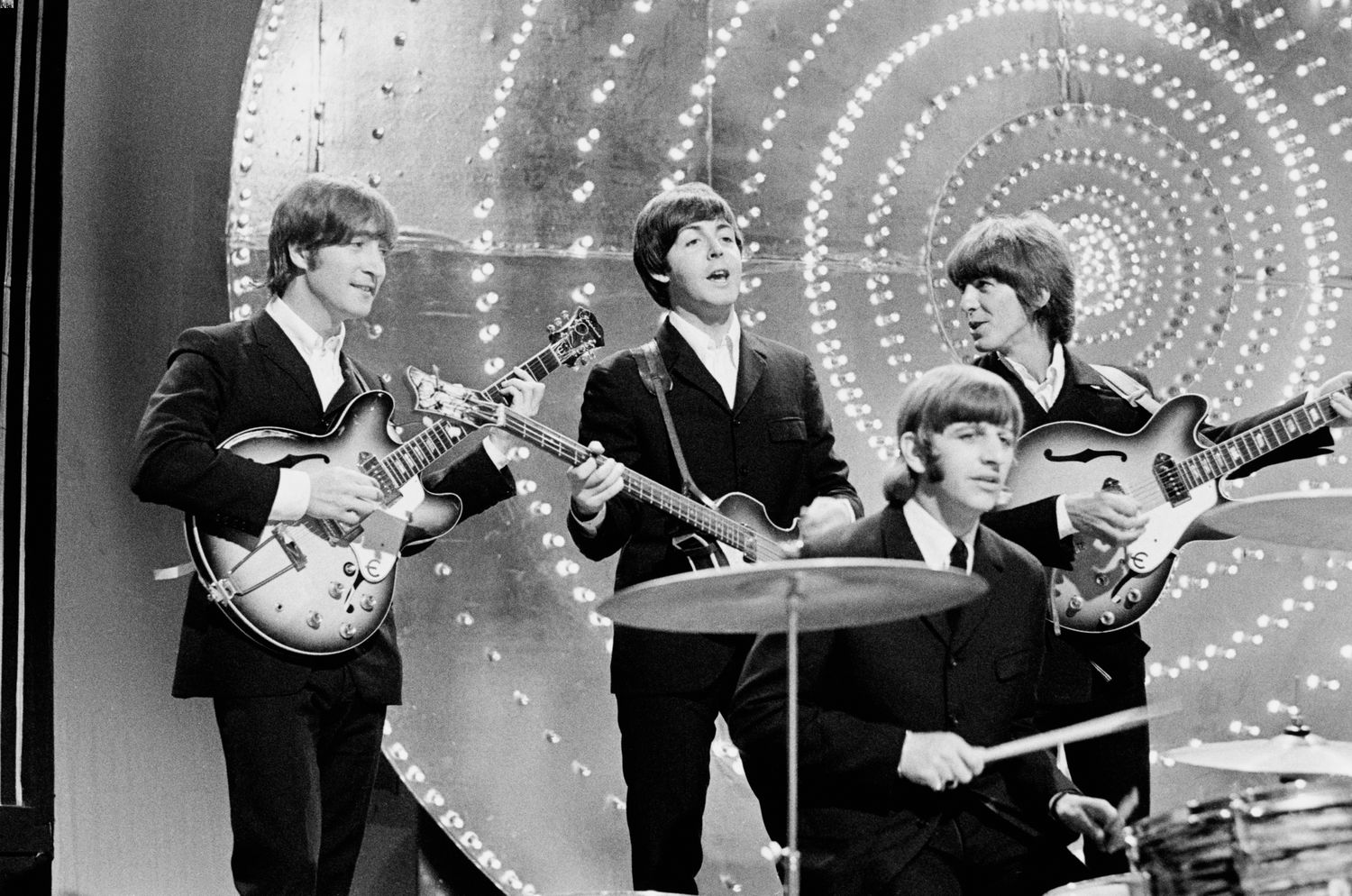

Digital
The Beatles In The Digital Era: How They Changed Music
Published: March 9, 2024
Discover how The Beatles revolutionized music in the digital age and their lasting impact on the industry. Explore their influence on the digital era and the evolution of music.
(Many of the links in this article redirect to a specific reviewed product. Your purchase of these products through affiliate links helps to generate commission for AudioLover.com, at no extra cost. Learn more)
Table of Contents
Introduction
The Beatles are undeniably one of the most influential and iconic bands in the history of music. Their impact on the industry has been profound, shaping the landscape of popular music and leaving an indelible mark on generations of fans and musicians. As we delve into the digital era, it's crucial to understand how The Beatles' legacy continues to resonate and evolve in the modern age.
The emergence of The Beatles in the 1960s marked a pivotal moment in music history. Their innovative sound, captivating lyrics, and charismatic personas propelled them to unprecedented levels of fame and success. With timeless hits such as "Hey Jude," "Let It Be," and "Yesterday," The Beatles transcended cultural boundaries and captured the hearts of millions around the world. Their music became a soundtrack for social change, love, and self-discovery, resonating with listeners across diverse backgrounds and generations.
In the digital age, the influence of The Beatles remains palpable. As technology continues to redefine the way we consume and interact with music, it's fascinating to explore how The Beatles' timeless catalog has seamlessly transitioned into the digital realm. The advent of streaming platforms, digital downloads, and social media has revolutionized the music industry, presenting both challenges and opportunities for artists and listeners alike.
The Beatles' enduring popularity serves as a testament to their unparalleled artistry and cultural significance. Their music has not only stood the test of time but has also thrived in the digital landscape, captivating new audiences and rekindling the passion of long-time fans. In an era characterized by fleeting trends and rapid technological advancements, The Beatles' music endures as a timeless beacon of creativity and emotional resonance.
As we embark on a journey to explore The Beatles' impact on the digital era, it's essential to recognize the enduring power of their music and the ways in which it continues to shape the contemporary musical landscape. From their groundbreaking innovations in the studio to their enduring cultural impact, The Beatles' legacy serves as a guiding light for artists and music enthusiasts navigating the ever-evolving digital frontier.
The Beatles' journey through the digital era offers a compelling narrative of adaptation, innovation, and the enduring power of artistic expression. As we delve into the transformative impact of The Beatles in the digital age, we gain valuable insights into the dynamic interplay between timeless artistry and technological evolution, shaping the future of music in ways that continue to resonate with audiences worldwide.
The Beatles' Impact on Music
The Beatles' impact on music transcends generational boundaries, leaving an indelible mark on the industry that continues to resonate to this day. Emerging in the 1960s, The Beatles revolutionized popular music with their innovative sound, captivating melodies, and thought-provoking lyrics. Their influence extended far beyond the realm of entertainment, shaping cultural movements and redefining the role of musicians in society.
At the heart of The Beatles' impact lies their unparalleled creativity and willingness to push the boundaries of traditional music. Their experimentation with studio techniques, such as double tracking and tape loops, introduced a new sonic landscape that captivated audiences and inspired countless artists. Songs like "A Day in the Life" and "Strawberry Fields Forever" showcased their willingness to defy conventions and embrace sonic innovation, setting a new standard for musical exploration.
Moreover, The Beatles' ability to craft timeless melodies and poignant lyrics elevated the art of songwriting to new heights. Tracks like "Yesterday," "Let It Be," and "Hey Jude" exemplify their mastery of storytelling and emotional resonance, cementing their status as prolific songsmiths. Their ability to infuse personal experiences with universal themes resonated with listeners on a profound level, forging a deep emotional connection that transcended cultural and linguistic barriers.
Beyond their musical prowess, The Beatles' impact on the industry was also evident in their cultural influence. Their embrace of countercultural movements and advocacy for social change resonated with a generation seeking to challenge the status quo. From their outspoken views on civil rights to their rejection of conformity, The Beatles embodied the spirit of rebellion and individuality, inspiring a wave of social and cultural transformation.
As a result, The Beatles' impact on music extends far beyond their chart-topping hits and record-breaking sales. Their legacy lies in their ability to ignite a cultural revolution, redefine the boundaries of artistic expression, and inspire generations of musicians to follow in their footsteps. The Beatles' impact on music remains a testament to the enduring power of creativity, innovation, and the profound influence of art on society.
In the digital era, The Beatles' music continues to captivate audiences, transcending time and technological advancements. Their impact on music serves as a timeless reminder of the transformative power of art and the enduring legacy of those who dare to challenge the norms and redefine the boundaries of creativity.
The Digital Revolution in the Music Industry
The advent of the digital revolution has fundamentally reshaped the music industry, ushering in a new era of accessibility, distribution, and consumption. With the proliferation of digital technologies, music has become more readily available to a global audience, transcending geographical barriers and redefining the traditional paradigms of music distribution.
One of the most significant transformations brought about by the digital revolution is the democratization of music production and distribution. The emergence of digital audio workstations (DAWs) and software-based recording tools has empowered artists to create and produce music with unprecedented ease and affordability. This shift has democratized the creative process, allowing aspiring musicians to realize their artistic visions without the constraints of traditional recording studios.
Furthermore, the rise of digital streaming platforms has revolutionized the way music is consumed and shared. Services such as Spotify, Apple Music, and Amazon Music have provided listeners with instant access to an extensive catalog of songs, albums, and playlists, fundamentally altering the dynamics of music consumption. The convenience of on-demand streaming has supplanted physical media and digital downloads, offering a seamless and immersive listening experience for audiences worldwide.
In addition, social media and digital marketing have become instrumental in shaping the success and visibility of artists in the digital era. Platforms like Instagram, Twitter, and TikTok have enabled musicians to engage directly with their fan base, cultivate a strong online presence, and amplify their reach through viral content and interactive campaigns. The ability to connect with fans on a personal level and harness the power of social media has redefined the dynamics of artist-fan relationships, fostering a sense of community and intimacy in the digital space.
Moreover, the digital revolution has catalyzed a paradigm shift in music monetization and revenue streams. While the transition from physical sales to digital downloads initially posed challenges for the industry, the rise of streaming services has introduced new opportunities for artists to monetize their music through royalties and performance metrics. This shift has prompted a reevaluation of traditional revenue models, prompting artists and labels to adapt to the evolving landscape of digital music consumption.
As the music industry continues to navigate the digital frontier, the impact of technological innovation on artistic expression, distribution, and consumption remains a defining feature of the contemporary musical landscape. The digital revolution has not only transformed the mechanics of music creation and distribution but has also redefined the ways in which artists connect with their audience, monetize their craft, and navigate the ever-evolving terrain of the digital music industry.
The Beatles' Transition to the Digital Era
The transition of The Beatles' timeless catalog into the digital era marked a significant milestone in the band's enduring legacy. As the music industry underwent a seismic shift towards digital distribution and consumption, The Beatles' journey into the digital realm presented both challenges and opportunities, ultimately reshaping the dynamics of their musical presence in the contemporary landscape.
The Beatles' foray into the digital era was characterized by a deliberate and strategic approach to embracing new technologies while preserving the integrity of their iconic sound. In 2010, The Beatles' entire catalog was remastered for digital release, ensuring that their timeless recordings were meticulously optimized for the digital audio landscape. This meticulous remastering process aimed to capture the nuances and sonic richness of The Beatles' original recordings, ensuring that their music would resonate authentically with audiences experiencing it in a digital format.
Furthermore, The Beatles' transition to the digital era was marked by a landmark partnership with leading streaming platforms. In 2015, The Beatles' music was made available for streaming on major platforms such as Spotify, Apple Music, and Amazon Music, granting a new generation of listeners seamless access to the band's legendary discography. This strategic move not only expanded the reach of The Beatles' music but also introduced their timeless sound to a global audience of digital music enthusiasts.
The digital era also witnessed The Beatles' embrace of innovative multimedia platforms to engage with fans and preserve their legacy. The launch of The Beatles' official YouTube channel facilitated the dissemination of archival footage, music videos, and rare performances, providing fans with a captivating visual journey through the band's storied career. Additionally, The Beatles' presence on social media platforms, including Facebook, Instagram, and Twitter, fostered a vibrant digital community of fans, enabling the band to connect with audiences in new and immersive ways.
Moreover, The Beatles' transition to the digital era was underscored by a commitment to preserving the artistic integrity of their music while leveraging cutting-edge technologies to enhance the listening experience. The release of The Beatles: Rock Band video game introduced a new generation of gamers to the band's music, offering an interactive and immersive platform for fans to engage with iconic Beatles songs in a digital medium.
In essence, The Beatles' transition to the digital era exemplifies a harmonious fusion of timeless artistry and technological innovation. By embracing digital platforms, remastering their catalog, and engaging with fans through multimedia channels, The Beatles ensured that their music would continue to resonate across generations in the ever-evolving digital landscape. This seamless transition not only reaffirmed the band's enduring relevance but also solidified their position as pioneers of innovation in the digital music era.
The Beatles' Influence on Modern Music
The Beatles' influence on modern music reverberates through the fabric of contemporary musical expression, shaping the creative landscape and inspiring a myriad of artists across genres and generations. Their innovative approach to songwriting, experimentation with studio techniques, and boundary-defying sonic explorations have left an indelible imprint on the evolution of popular music, transcending time and cultural shifts.
At the core of The Beatles' influence lies their revolutionary approach to songwriting and composition. The band's ability to seamlessly blend infectious melodies with introspective lyrics set a new standard for artistic depth and emotional resonance. Their exploration of diverse musical styles, from rock 'n' roll and folk to Indian classical music and avant-garde experimentation, expanded the sonic palette of popular music, laying the groundwork for future generations of artists to embrace eclecticism and genre-bending creativity.
Furthermore, The Beatles' impact on modern music is evident in their pioneering use of studio techniques and production innovations. The band's collaboration with producer George Martin resulted in groundbreaking sonic experimentation, including the use of tape loops, backward recording, and innovative sound manipulation. These studio innovations not only redefined the possibilities of music production but also inspired a culture of sonic exploration and technical innovation that continues to shape contemporary music production.
The Beatles' influence on modern music extends beyond their sonic innovations, encompassing their cultural impact and enduring legacy as global icons. Their advocacy for artistic autonomy, social consciousness, and the pursuit of creative authenticity set a precedent for artists seeking to use their platform for social change and cultural reflection. The band's ability to transcend the confines of popular music and venture into uncharted artistic territories has inspired a generation of musicians to embrace risk-taking and artistic evolution.
Moreover, The Beatles' influence on modern music is palpable in the realm of collaborative creativity and cross-disciplinary artistic expression. Their collaborative dynamics, harmonious vocal arrangements, and collective songwriting ethos have influenced countless bands and musical partnerships, emphasizing the power of collective creativity and shared artistic vision in shaping the musical landscape.
In essence, The Beatles' influence on modern music is a testament to their enduring legacy as trailblazers of artistic innovation and cultural resonance. Their impact transcends the confines of a specific era, resonating with contemporary artists who continue to draw inspiration from The Beatles' timeless artistry, sonic experimentation, and unwavering commitment to pushing the boundaries of musical expression. As modern music continues to evolve, The Beatles' influence remains an ever-present force, guiding artists towards new frontiers of creativity and sonic exploration.
Conclusion
The Beatles' enduring impact on music, coupled with the transformative influence of the digital revolution, underscores the dynamic interplay between timeless artistry and technological innovation. As we reflect on The Beatles' journey through the digital era, it becomes evident that their legacy transcends the confines of a specific era, resonating with audiences across generations and seamlessly adapting to the ever-evolving landscape of music consumption and distribution.
The band's transition into the digital era exemplifies a harmonious fusion of artistic integrity and technological adaptation. From the meticulous remastering of their catalog to their strategic embrace of streaming platforms and multimedia channels, The Beatles ensured that their music would continue to captivate audiences in the digital age. Their commitment to preserving the authenticity of their sound while leveraging cutting-edge technologies underscores their unwavering relevance in an era defined by rapid technological advancements.
Moreover, The Beatles' influence on modern music serves as a guiding light for contemporary artists navigating the complexities of the digital music landscape. Their innovative approach to songwriting, studio experimentation, and cultural impact has left an indelible imprint on the fabric of popular music, inspiring a new generation of musicians to embrace eclecticism, sonic exploration, and social consciousness in their artistic endeavors.
As the digital revolution continues to redefine the mechanics of music creation, distribution, and consumption, The Beatles' legacy remains a timeless beacon of creativity and emotional resonance. Their ability to transcend cultural boundaries, challenge artistic norms, and inspire social change underscores the enduring power of music as a catalyst for cultural transformation and collective expression.
In essence, The Beatles' journey through the digital era encapsulates the transformative potential of artistry in the face of technological evolution. Their music continues to serve as a testament to the enduring impact of creativity, innovation, and the profound influence of art on society. As we navigate the ever-changing landscape of the digital music industry, The Beatles' legacy stands as a testament to the enduring power of artistic expression and the timeless resonance of music in an era defined by technological flux.


